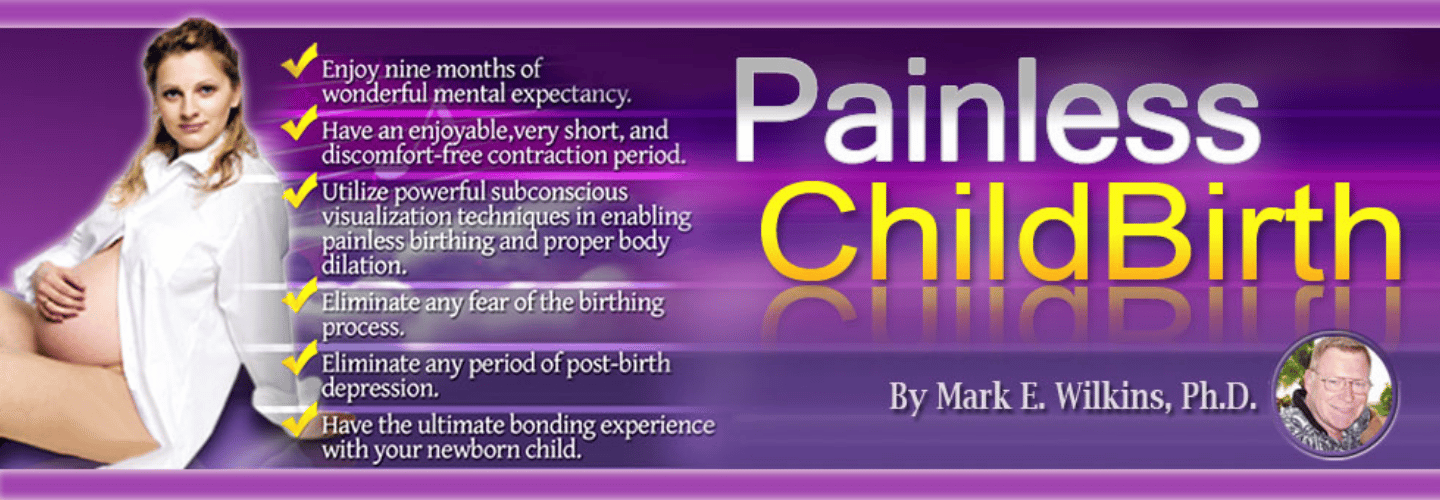
Begin a transformative journey towards painless childbirth through the fascinating domain of hypnosis. Expose the remarkable potential of your mind to navigate labor with ease and serenity. Explore how hypnosis can revolutionize the birthing experience, offering a pathway to empowerment and tranquility amidst the intensity of childbirth. Immerse yourself in the world of self-hypnosis techniques and visualization practices that have the power to redefine the way we approach bringing new life into the world. Join us as we investigate the enthralling possibilities that hypnosis holds for expectant mothers seeking a more peaceful and empowering birthing experience.
Hypnosis for Labor Pain Relief
In the domain of childbirth pain management, hypnosis emerges as a powerful and promising technique for alleviating labor discomfort and enhancing the birthing experience. Studies have shown that hypnosis can notably reduce the need for pharmacological pain relief during labor, offering women a more natural and empowering way to manage the pain associated with childbirth. By preparing someone to enter a state of focused attention and deep relaxation, hypnosis can help women experience faster and more comfortable births, with lower levels of anxiety and stress.
Pregnant women, being more hypnotizable, are especially receptive to the benefits of hypnosis for pain relief during childbirth. Through interventions that involve focusing awareness inward and responding to positive suggestions, hypnosis provides a complementary therapy that not only reduces the intensity of labor pain but also promotes a sense of control and well-being throughout the birthing process. Embracing hypnosis as a tool for labor pain relief can lead to a more positive and empowering childbirth experience for women.
HypnoBirthing Techniques and Benefits
HypnoBirthing techniques offer expectant mothers a holistic approach to childbirth, emphasizing natural birthing processes and empowering women through relaxation and self-hypnosis practices. By focusing on the body's innate ability to labor and deliver, HypnoBirthing promotes a positive mindset towards childbirth, steering clear of fear-based education. Through the utilization of self-hypnosis and relaxation techniques, women can reduce fear, tension, and pain during labor, fostering a more empowering and positive birth experience.
Central to HypnoBirthing is the use of positive language and messaging, where contractions are reframed as surges and discomfort as pressure, reshaping the perception of childbirth. Participants engage in self-hypnosis and relaxation scripts to maintain control over their thoughts and actions throughout the birthing process. Practical preparation involves learning best movements for baby descent, extensive practice of self-hypnosis audios, and exploring research on the efficacy of HypnoBirthing for achieving a positive birth experience. Overall, HypnoBirthing equips expectant mothers with valuable tools to navigate childbirth with confidence and calm.
Evidence of Hypnosis Efficacy in Childbirth

Research has highlighted the efficacy of hypnosis in childbirth, showcasing its ability to reduce the need for analgesia, potentially shorten labor duration, and improve birth outcomes.
Studies have indicated that hypnosis techniques can lead to more comfortable births and lessen the need for pain medications and interventions during labor.
Hypnosis for Pain Relief
Utilizing hypnosis as a method for pain relief in childbirth demonstrates significant efficacy in reducing the need for analgesia and promoting a more comfortable birthing experience. Hypnosis serves as a non-pharmacological option that can effectively reduce anxiety and enhance overall well-being during labor.
Here are four ways hypnosis can aid in pain relief during childbirth:
- Visualization techniques in hypnosis can help pregnant individuals relax deeply, easing the intensity of contractions.
- Positive affirmations used in hypnosis can shift focus away from pain, creating a more positive mindset.
- Self-hypnosis empowers individuals to regulate their sensations and responses to pain.
- Hypnosis can create a sense of control and calm, reducing fear and increasing feelings of safety during the birthing process.
Reduced Labor Duration
Recent studies have demonstrated the significance of hypnosis in reducing labor duration and enhancing the birthing experience for women. By incorporating hypnosis techniques like positive affirmations and visualizations, women can better manage pain and progress through labor more efficiently.
Research has indicated that women utilizing hypnosis during childbirth often experience shorter labor durations compared to those who do not. The induction of a calm and focused state through hypnosis can lead to smoother and quicker labor experiences. This practice has been linked to decreased labor times, contributing to a more comfortable and efficient delivery process.
Hypnosis in childbirth plays an essential role in pain management and reducing labor duration, offering women a more positive and empowering birthing experience.
Improved Birth Outcomes
Hypnosis during childbirth has demonstrated significant efficacy in improving birth outcomes, including reduced overall analgesia use and enhanced relaxation for laboring women. When considering hypnosis for labor, some key benefits include:
- Decreased Pain Medication: Studies show that hypnosis can lead to a decreased need for pain medication during childbirth.
- Enhanced Relaxation: Hypnosis has been found to enhance relaxation and reduce anxiety levels in women in labor.
- Faster Births: Research suggests that hypnosis may contribute to faster and more comfortable births.
- Reduced Interventions: Evidence indicates that hypnosis can decrease the need for interventions, leading to a more natural childbirth experience.
Embracing hypnosis for labor can lead to improved birth outcomes, increased satisfaction with pain relief, and a more positive birthing experience overall.
Hypnosis Programs for Expectant Mothers

Expectant mothers can explore specialized hypnosis programs designed to enhance pain management and relaxation techniques during childbirth. Programs like Hypnobabies® and HypnoBirthing® offer self-hypnosis training, empowering women to achieve a relaxed state and reduce anxiety while in labor. These programs emphasize the use of positive affirmations, visualization, and relaxation techniques to help mothers experience a more comfortable and controlled birth process. By learning these methods, expectant mothers can feel more confident and in charge during delivery.
Hypnosis programs for expectant mothers focus on providing tools that promote a sense of empowerment and confidence, ultimately leading to a positive birth experience. Research indicates that these programs are effective in facilitating pain relief and improving birth outcomes for women. Through these specialized hypnosis programs, expectant mothers can tap into their inner strength and mental resources to navigate the birthing process with greater ease and comfort.
Survey Results From Hypnosis Users
Survey results from parents who utilized hypnosis during childbirth have revealed a multitude of positive outcomes. Users reported significant reductions in anxiety and fear levels, alongside heightened feelings of calmness during labor.
The shift from anxiety to empowerment post-hypnosis training showcases the efficacy and benefits of such programs for expectant mothers.
User Benefits
Upon embracing hypnosis as a tool for childbirth, women reported significant reductions in anxiety and fear levels, leading to enhanced calmness and empowerment during labor. Hypnosis users experienced unexpected benefits such as feeling more confident and empowered during childbirth. The majority of women who utilized hypnosis during labor reported positive experiences with pain relief.
Here are some key user benefits:
- Reduced anxiety and fear levels
- Increased calmness and relaxation
- Shift from anxiety to empowerment
- Positive experiences with pain relief
These findings suggest that hypnosis can play a valuable role in enhancing the childbirth experience by providing pain relief, reducing anxiety, and empowering women during labor.
Efficacy Evidence
Women who utilized hypnosis during childbirth reported overwhelmingly positive experiences with reduced anxiety, increased empowerment, and effective pain management, as evidenced by survey results highlighting the efficacy of this technique.
The survey results from hypnosis users during childbirth consistently showed reduced anxiety and fear levels, leading to a sense of empowerment and calmness during labor and birth. The majority of women using hypnosis for pain relief reported positive experiences, emphasizing the technique's effectiveness in managing pain during labor.
Hypnosis not only helped in pain management but also improved relaxation and coping mechanisms. Users also noted unexpected benefits, such as increased calmness and confidence, further supporting the positive impact of hypnosis in reducing anxiety and enhancing the childbirth experience.
Positive Experiences
Amidst the world of childbirth experiences enhanced by hypnosis, a remarkable transformation from anxiety to empowerment unfolds for many participants. Survey results reveal the positive impact of hypnosis on reducing anxiety levels and providing pain relief during labor.
Here are four compelling insights from the feedback of hypnosis users:
- Women who received hypnosis reported notably reduced anxiety and fear levels.
- Antenatal self-hypnosis training empowered participants, shifting their mindset from anxious to confident.
- The calming effects of hypnosis during labor were evident, with many women expressing increased relaxation and composure.
- Midwives observed the relaxed demeanor of women practicing self-hypnosis, indicating its effectiveness in managing pain and enhancing the birthing experience.
Research Insights on Hypnosis for Birth
In the field of childbirth research, insights into the use of hypnosis as a tool for pain management during labor have shown promising outcomes. Nine trials involving 2954 women compared hypnosis to control groups for pain management during labor. The research findings suggest that hypnosis may reduce overall analgesia use during childbirth.
Hypnosis interventions are designed to decrease anxiety, alleviate fear, and enhance mood during labor, offering a holistic approach to pain management. Women who utilized self-hypnosis for pain relief during childbirth reported positive experiences. Self-hypnosis training not only resulted in reduced pain perception but also led to increased feelings of calmness, relaxation, and empowerment in women during labor.
These research insights highlight the potential benefits of incorporating hypnosis techniques, including self-hypnosis, as part of a comprehensive approach to pain management during childbirth.
Self-Hypnosis Practices for Childbirth

Harnessing the power of self-hypnosis practices can be a transformative tool for expectant mothers preparing for childbirth. Self-hypnosis involves focusing inward and responding to positive suggestions, allowing women to manage pain and anxiety during labor through techniques like positive affirmations and relaxation scripts.
To paint a vivid picture of how self-hypnosis works in childbirth, consider the following:
- Immersing in Relaxation: Picture a serene setting where the mother-to-be is surrounded by calming sounds and sensations, deeply relaxed and at peace.
- Empowering Affirmations: Envision the expectant mother confidently repeating affirmations like 'I trust my body' or 'I am prepared for this experience,' reinforcing a positive mindset.
- Pain Management Techniques: Imagine the woman using visualization to transform sensations of pain into feelings of comfort and control, easing the birthing process.
- Coping Skills Enhancement: See how regular self-hypnosis practice enhances the mother's ability to stay relaxed, focused, and resilient during childbirth, promoting a smoother and more positive delivery experience.
HypnoBirthing Education and Preparation
Exploring the foundational principles of HypnoBirthing education and preparation reveals a holistic approach to childbirth that celebrates the innate capabilities of the female body. HypnoBirthing emphasizes using hypnosis to prepare someone for childbirth by instilling a positive mindset and enhancing self-efficacy levels regarding the birthing process.
By reframing pain as discomfort and contractions as surges, women are encouraged to trust in their body's natural ability to labor and deliver without fear-based education. Through self-hypnosis techniques, expectant mothers are empowered to remain in control of their thoughts and actions during labor, promoting a sense of calm and relaxation.
The preparation for a HypnoBirthing experience involves dedicating at least 20 hours to practicing relaxation scripts and audios, which have been shown through research to correlate with positive birth experience outcomes. This inclusive approach to childbirth education not only fosters a deeper connection between mind and body but also cultivates a sense of confidence and readiness for the birthing journey ahead.
Exploring Alternatives to Hypnosis for Birth

Venturing into a journey outside the domain of hypnosis for childbirth, various alternative methods offer expectant mothers a diverse array of options for pain relief and relaxation during labor. These alternatives provide effective strategies to enhance the birthing experience:
- Acupuncture: By targeting specific points on the body, acupuncture has been proven to reduce labor pain intensity and duration. This traditional Chinese medicine practice offers a non-pharmacological approach to pain management during childbirth.
- Massage Therapy: Incorporating massage therapy during labor can notably decrease anxiety levels, improve overall mood, and reduce the perception of pain. The gentle and comforting touch of a trained therapist can help expectant mothers relax and cope with the challenges of labor.
- Water Immersion: Immersing in water, whether in a birthing pool or tub, has been associated with decreased pain levels and increased satisfaction during childbirth. The soothing effects of warm water can provide comfort and relaxation, making the labor process more manageable.
- TENS (Transcutaneous Electrical Nerve Stimulation): TENS units deliver mild electrical impulses to nerve endings, effectively blocking pain signals and providing relief during labor without the need for medications. This method offers a non-invasive way to manage pain and discomfort throughout the birthing experience.
Frequently Asked Questions
Can Hypnosis Reduce Pain in Childbirth?
Hypnosis effectiveness in pain management during childbirth is increasingly recognized. The mind-body connection plays a pivotal role in altering pain perception. Research indicates that hypnosis can reduce pain levels and the need for analgesia during labor.
Can You Be Hypnotized to Not Feel Pain?
Harnessing the power of hypnosis can lead to remarkable results in altering perception and managing pain. The efficacy of hypnosis in pain management is well-documented, showcasing the profound mind-body connection.
What Is the Most Painless Birth Method?
When considering the most painless birth method, several factors come into play. Water birth offers benefits like buoyancy, warmth, and relaxation, which can aid in natural pain relief during labor.
Additionally, focusing on the mind-body connection through techniques such as deep breathing, visualization, and positive affirmations can help manage pain perception. By combining these approaches, women can optimize their birthing experience for increased comfort and a smoother delivery process.
Is It Possible to Feel No Pain During Birth?
Pain management techniques, such as hypnosis, highlight the mind-body connection in childbirth.
While complete painlessness may not be universally achievable, some individuals report significant pain reduction through alternative birthing methods like hypnosis.
By harnessing relaxation, positive language, and self-hypnosis, women may experience less discomfort during labor.
Understanding the role of these techniques and the individualized nature of pain perception can empower expectant mothers to explore options for a more comfortable birthing experience.
Conclusion
To sum up, hypnosis offers expectant mothers a powerful tool to manage pain and anxiety during childbirth. Research shows that 85% of women who use hypnosis techniques experience reduced pain intensity and increased calmness during labor.
By incorporating self-hypnosis practices and specialized programs like HypnoBirthing®, women can enhance their birthing experience and cultivate a positive mindset for a smoother delivery process.
Embracing hypnosis can truly transform the childbirth experience for the better.





